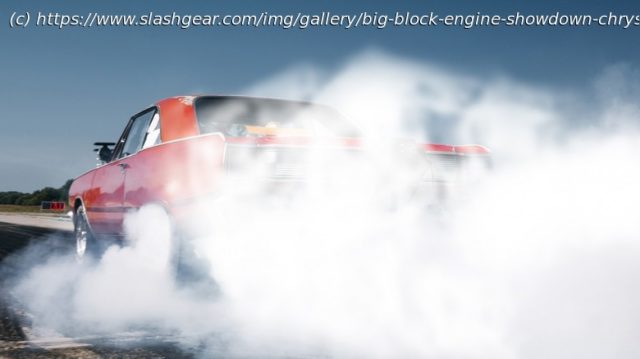At the peak of the muscle car era, the Big Three released competing big block engines: Chrysler’s 426 Hemi, Chevy’s 454, and Ford’s 429 Boss. Which is superior?
The old saying goes, “There is no replacement for displacement.” While modern engine technology proves that logic is fundamentally flawed, it’s still fun to remember the inexpensive gasoline and big-block-powered muscle cars of days gone by.
The three big block engines listed here are not the highest displacement engines ever installed in passenger cars and trucks. However, these performance-oriented big blocks were the go-to choice for muscle cars from the three prominent American automakers of the time.
The race to build sleeker, faster cars was on by the 1950s. The Muscle Car Era started in the early 1960s and reached its pinnacle in 1971. During that golden age, the “Big Three” automakers delivered cars like the Plymouth Hemi ‘Cuda, Chevrolet Chevelle SS, and Boss 429 Mustang.
It all came crashing down in 1972 as Government mandates required improved fuel economy, reduced emissions, and low-octane unleaded gasoline. Some big block engines carried on with lower compression ratios and crippling smog control equipment, but performance versions were gone.Chrysler 426 Hemi
Like many other automotive innovations, the Chrysler 426 Hemi owes its existence to automobile racing’s desire for more. The automaker’s NASCAR team felt it had reached the 426 Wedge engine’s performance limits by the conclusion of the 1963 racing season. Seeking more horsepower and speed, Mopar engineers applied Chrysler’s hemispherical cylinder-head technology, developed in the 1950s, to the Wedge’s 426-cubic-inch big block, creating a 426 Hemi with tremendous potential.
Home
United States
USA — IT Big Block Engine Showdown: Chrysler 426 Hemi Vs. Chevrolet 454 Vs. Ford...






